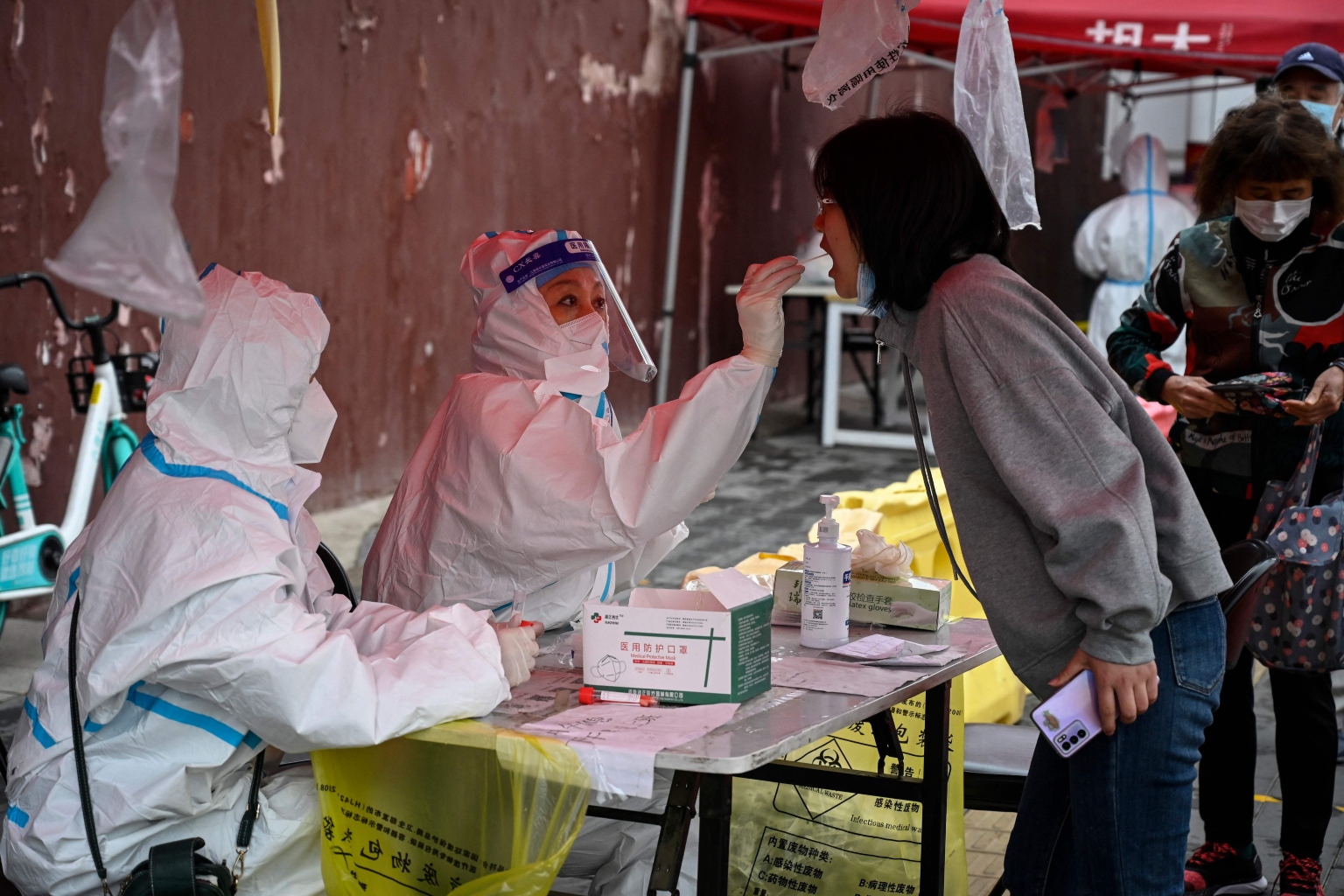Six Shanghai districts reach zero-Covid status; Beijing tightens restrictions
Sign up now: Get insights on Asia's fast-moving developments

Shanghai reported 7,872 new cases on April 30, down from 10,181 the previous day.
PHOTO: AFP
BEIJING (REUTERS, BLOOMBERG) - China's financial hub of Shanghai has reined in Covid-19 transmission risks at the community level, excluding cases in quarantine centres, with six of its 16 districts attaining zero-Covid status, an official said on Sunday (May 1).
This status is achieved when a district has three consecutive days with no new daily increases in infections, city government official Mr Gu Honghui told a news conference.
Public transport will be allowed to resume in five of the six districts, a city health official added, but did not say when.
The six districts that have met the threshold are mainly in the suburbs of Shanghai, and authorities vowed to continue implementing strict movement restrictions in other areas.
The financial hub that’s home to 25 million people reported a total of 7,872 new cases April 30, down from 10,181 the previous day, according to a statement from the city government.
All new infections were restricted to quarantined areas for the second straight day.
Despite the fall in transmissions, Shanghai will launch a new round of citywide PCR and antigen tests from Sunday until May 7, Mr Gu said.
Halting the community spread of Covid-19 would mark an important milestone in Shanghai’s containment efforts and embolden officials to start lifting restrictions and allow factories to resume production.
The lockdown imposed on Shanghai’s residents has been one of the longest and most punishing since the experience of Wuhan, where the pathogen was first detected in late 2019.
Beijing, where more than 300 locally transmitted cases have been logged since April 22, has not locked down.
The city found 59 new cases on Saturday, up from 54 the previous day, according to city authorities.
On Sunday the capital tightened social distancing rules and launched a fresh round of mass testing in its most populous and worst-hit district.
In the past week the city of 22 million has conducted mass testing in most of its 16 districts, suspended all entertainment venues, and banned restaurant dining.
In the past week the city of 22 million has conducted mass testing in most of its 16 districts, suspended all entertainment venues, and banned restaurant dining.
“The impact of all this on us is too great – 20,000 yuan (S$4,200) in a day gone, just like that!” said Mr Jia, a manager at a normally popular burger restaurant in the east of Beijing.
“Our boss is stressing out about this too,” Mr Jia said, asking to be identified only by his surname.
“Our boss is stressing out about this too,” Mr Jia said, asking to be identified only by his surname.
“We have three branches in Shanghai. They’ve all been shut and losing cash for a month. And now this.”
Beijing’s sprawling Universal Studios theme park closed on Sunday, while in the highly visited Badaling section of the Great Wall, visitors were told to show proof of negative Covid-19 test results before entering.
Chaoyang district, accounting for the biggest share of infections in Beijing’s outbreak, launched an additional round of mass testing, with public health workers knocking on doors to remind residents to get tested.
Overall, China reported 8,329 new confirmed cases of Covid-19 for April 30, the National Health Commission said on Sunday, down from 10,793 a day earlier.


